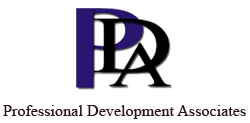
Course Customization and Presentation
Compliance Reviews and Corrective Action Plans
Internal Control Policy and Procedure Development

The control environment is the set of standards, processes, and structures that provide the basis for carrying out internal control across the organization. The board of directors and senior management establish the tone at the top regarding the importance of internal control including expected standards of conduct. Management reinforces expectations at the various levels of the organization. The control environment comprises the integrity and ethical values of the organization; the parameters enabling the board of directors to carry out its oversight responsibilities; the organizational structure and assignment of authority and responsibility; the process for attracting, developing, and retaining competent individuals; and the rigor around performance measures, incentives, and rewards to drive accountability for performance. The resulting control environment has a pervasive impact on the overall system of internal control.
Course Description
The course presents the summary, definitions, principles and points of focus of the control environment of the Internal Control Integrated Framework, 2013. The concepts and applications of the control environment are explored in detail in cumulative cases and exercises through each topic. The objective of the course is for participants to gain a detailed understanding and ability to apply the concepts, principles and points of focus of the control environment of the Internal Control Integrated Framework.
The component evaluation templates from the COSO Illustrative Tools for Assessing Effectiveness of a System of Internal Control serve as the basis for principle analysis in the cases and exercises. Participants will gain a working knowledge of how to adapt the tools for use in their daily work in their respective organizations.
Prerequisite:
This course is an applications course and requires an in-depth working knowledge of the overall Framework, its components, concepts and approaches. Only those who have attended the COSO2013 Internal Control Framework Overview Course or those who have a detailed working knowledge of the new Framework should attend this course.
The course was written by Michael L. Piazza, who is the primary presenter for the course. If date conflicts arise, the client will be given the option of a secondary instructor.
Who Should Attend:
Anyone in an organization who designs, implements, applies or reviews internal control including will greatly benefit from the course and applications. These include: administrators; accountants; finance officers; managers; risk management officers; quality assurance personnel; internal auditors; and anyone providing assurance to internal control and risk management effectiveness.
Course Agenda
Purchase and Schedule a Course Offering:
PDA courses are offered as public offerings by local chapters and for in-house presentation. Please submit the Request for Information form and a PDA representative will contact you within one business day to discuss the details and arrange a course date that suites your organization's needs. Course pricing is $4,500 which includes all instructor travel and lodging costs for domestic sites (a surcharge may be added for international sites due to increased travel related costs).
Course Customization:
This course can be modified for custom presentation including organizational specific cases, examples and concepts. A $1,500 customization fee covers all conversions and customizations. A one day consulting trip to the client location for interviews and sample analysis is offered at an additional inclusive fee of $2,500.